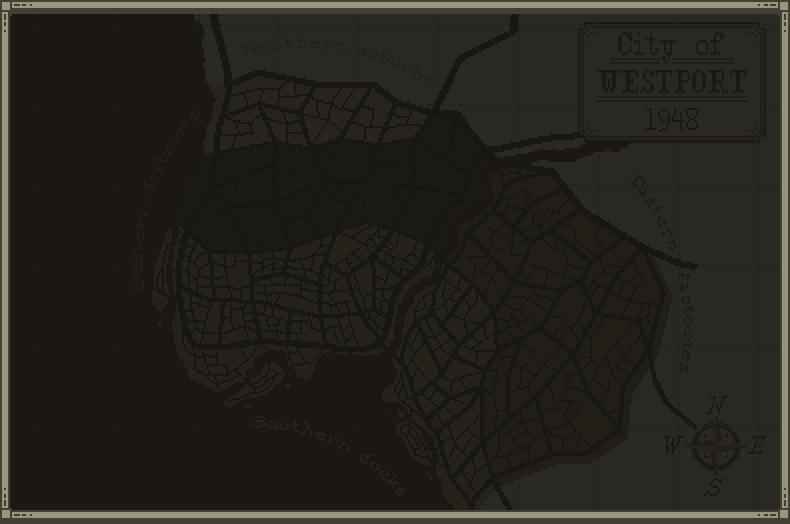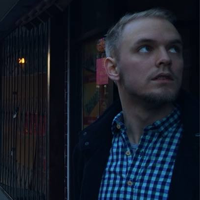
Featured Blog | This community-written post highlights the best of what the game industry has to offer. Read more like it on the Game Developer Blogs or learn how to Submit Your Own Blog Post
Catching attention on expos as a no-name developer
A post about getting attention on expos amongst a crowd of games that are probably more well known than yours.

As most of you know, GDC took place two weeks ago. A lot of folks were there and a lot of things were shown. We were there as well, in a normal-size booth standing quite a bit to the side on the expo floor. However, whiles GDC was a great experience that we gained a lot from (both in terms of learning and exposure), what I'd like to talk about is the Media Indie Exchange that took place on monday of the GDC week.
Indie Media Exchange (Hereby refereed to as "The MIX") is, for you who don't know, basically a decently small gathering for indie developers and press folks (around 40-50 developers, quite a few more journalists). The event itself is a great opportunity for those who want a chance to show off their games to big name press like IGN, GameSpot, Game Informer, Eurogamer, PC Gamer, Polygon, Kotaku etc.
What was our part in all this? Well, we were there as one of the developers. And this being on the monday of the GDC week – keep in mind that the Expo floor didn't even open until wednesday – I hadn't actually showed or pitched the game to any expo-goers beforehand. Now, GDC is not the first expo we've shown The Westport Independent on. However, it was the first time we showed it at an english-speaking event, and it was the first time I spoke to any big name (and english, for that matter) press. Added to this, the build we were showing was only tested on a small group of people. Luckily Armin Ibrisagic from Coffee Stain Studios (our publisher) was there to help me out. Still, lack of pressure was not really an issue to say the least.
Let me quickly present my company and our game: We're a two man team who's developing our first commercial title; A censorship simulator called "The Westport Independent". We've made some games in the past that are featured on our website (Mostly game jam games) but none of them has ever gotten us much exposure, meaning we were basically no-names at the event.

Now to give credit where credit is due: Armin was super helpful during the event. He was able to get some great people to check out our game, and did an awesome job providing things like drinkables whiles I was busy managing our table. Still, this is our game and our responsibility, so getting people to check out our game was my responsibility as much as it was Armin's.
So how do you sell a no-name, text-heavy and action-less game to by-passing press people who have more well-known and visually appealing games to get to? Well, The MIX is in this regard way more "fair" than most other expo-like events. This is because pretty much all developers gets access to the same space, equipment and table. In contrast to something like the Expo floor at GDC, big name developers can't really purchase a flashier booths in better spots in order to get more attention. What you sell at The MIX is your game, not interior or architectural designs.
That being said, The Westport Independent is still a hard sell a first glance. Because of this, I had to be a bit more "aggressive" than most people when showing our game. And let's just say that I'm not superbly experienced in this field at all. After some time on the floor though, I came up with a few guidelines for myself in order to catch peoples attention:
Start the conversation.
The hardest part when being more "aggressive" at expo-like events is starting the conversation. No one wants to sound like a forceful car salesman, but apathy and passiveness won't get you far either. In general I found that all you really need is a greeting. Look at peoples faces, and if someone lingers for a second or two whiles looking at your table, greet them. Most people, if they had something they wondered about, will then ask a question. Usually "So what's this?" or "What's this about?". And viola! You're in.
It may seem a bit silly that you need to do this when obviously their attention has already been sort of caught (why else would they linger?). However, most of the time when people stare at your game for a second it's more of a small "Huh, wonder what that is?" that people don't really feel warrant starting a conversation, rather than "Oh man, I really want to find out what that is!". But if you greet them, a conversation is already started, and whatever question they had in mind will (probably) be asked.
But what if they don't linger? That's harder for sure. Starting a conversation with someone who hasn't noticed your game can feel quite forceful if you're not careful. I'd recommend trying to check out some of the press who'll be at the event before hand, so that you can adhere to some of their interests. Have their publication written about your game before? That's a conversation starter. Is this journalist a fan of your game's genre? That's a conversation starter. Is this person a YouTuber and your game would work great as a Let's Play? That's a conversation starter as well.
We managed pretty well because our game is about censorship, corruption and newspapers, meaning that most everyone there (being press and all) could relate to at least some of the games themes.
The legendary elevator pitch.
After you've caught peoples initial attention, you need to make them want to play your game (or make them want more information on the game). Here's where the legendary elevator pitch comes in.
If you've never heard of an elevator pitch, it's basically a short pitch of your game that's not really meant to explain the game as much as it's about getting people interested to find out more. Corey Warning recently gave some pointers in his post-GDC article when creating your own elevator pitch (you can check that article out here: http://www.gamasutra.com/blogs/CoreyWarning/20150312/238543/).
Because of the theme in our game, we could make a super short elevator pitch that pretty much always caught peoples attention:
"The Westport Independent is what we like to call a 'Censorship Simulator'."
Needless to say, most people have never heard of a censorship simulator before. At the same time, censorship as a subject-matter is something most people find quite interesting. Because of this, we got a very good response pretty much every time we told the pitch, which then easily moved on to
more in depth explanations.
A pitch this short won't work for every game though. Saying something like "Our game is a puzzlebased platformer with innovative rouglike-elements" won't catch anyones attention. I recommend googling around a bit to if you want to learn how to make a good elevator pitch, but to put it shortly, you need to sell what makes your game interesting and different.
Making the game interesting to bystanders when someone's playing
Usually what happens when people play your game is that people flock around it. This is a bit ironic, seeing how these flocks only appear whiles someone's already playing, and never when the playing seat is free. But I digress.
When someone else is playing, you need to make sure that the people watching are still interested in the game. If you only give attention the one playing, by-standers will soon lose interest and move on.
This creates a problem as both the player and the watchers will have arrived at the table at different times, meaning that they've heard different amounts of information about the game. Because of this, I'd recommend not going into too much details, and instead focus on the game in broader terms. For an example; Talk about different environments, characters and general mechanics. Don't go in to minuscule gameplay details that only people who were at the start of the conversation will understand. If they ask about such details, answer it, but keep it decently short.
Making sure people don't play for too long, without being rude
One problem with our game is that the demo we brought to GDC took a little less than an hour to play through. We (foolishly) though that no-one would play for that long and would leave after a testing the game for a few minutes. Turns out that that wasn't the case AT ALL, and while it's really fun and heartwarming to see people enjoying your game, this creates a bit of an issue: Whenever a crowd started to gather, we had to ask players to make room for other people. But how do you do this without sounding rude?
Mostly it's just about asking the onlookers if anybody else would like to try. The people who play for long don't really mean to get in the way, and won't have a problem leaving if someone wants to take over. Now off course, some people won't dare to step up even if you ask if it means taking the spot of someone who's already playing. That's a hard one to crack, and I haven't really found a way to solve that issue without appearing forceful.
Or you know, you could solve this entire problem by making a 5-10 minute demo rather than a 50- 60 minute demo.
Remember to make notes about the people who are interested.
This is not so much for the sake of selling your game at the event as it is selling it afterwards. If a person is interested in your game, you'll most likely receive a business card. If an event like this is
even moderately successful, you'll receive what feels like 58 gazillion cards in total. And the only way to remember who's who is to take notes.
And don't go "Oh, I'll remember" or "I can do that later". You won't. And when you get back from GDC you won't be able to remember who you should send a build, who you should send a press kit, or who you should contact regarding a future interview. Just take a pencil and make a small note either in a notebook or on the business cards themselves (recommended) whenever you receive a card or alike, and you'll have a way easier time hen you get back home.
How did it go for us?
In general we feel that the event was a great success for us. On The MIX, we got some attention by sites like Game Informer, and we were named "Biggest Suprise" by IGN at the event. After The MIX (during the GDC expo), we also got attention from sites like 148 Apps and PC Gamer (though that was in much due to Armin's help). Off course, there are still things I'd like to imporve in the future. Still, we flew home very satisfied from San Fransisco this year.
...And that's all I have to say about that.
For our next expo we'll try to improve on all the above things, especially when it comes to taking notes on people we talk with. We will also try out new ways of getting noticed, and if we find something good I guess I'll write some more here. So until then!
Pontus Lundén
CEO and stuff at Double Zero One Zero
www.DoubleZeroOneZero.com
@0010_games
Read more about:
Featured BlogsAbout the Author(s)
You May Also Like







.jpeg?width=700&auto=webp&quality=80&disable=upscale)








